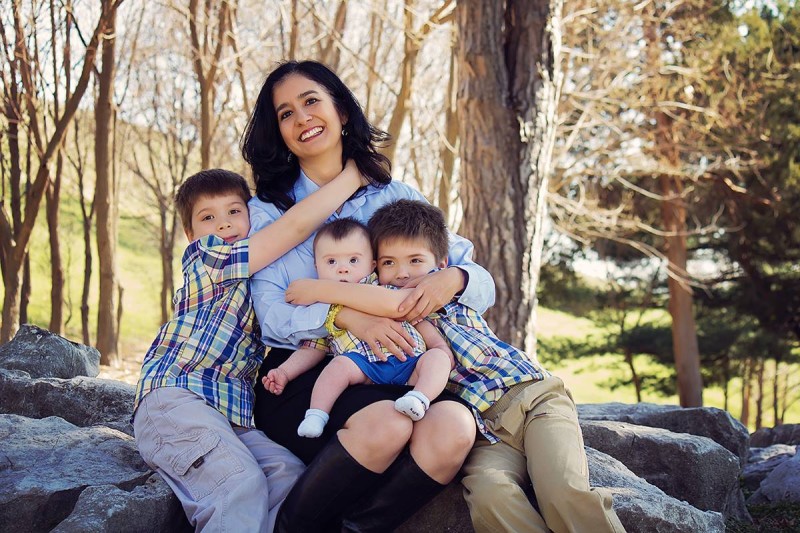JEFFERSON CITY, Mo. – Rep. John McCaherty, R-High Ridge, said a bill he has filed, hoping to require courts to uphold original in vitro fertilization agreements between parents, is common sense.
“The bill, HB 2558, itself simply says that if a decision has been made and both parents are in agreement with the decision that had been made, then you go with the decision that was made,” said McCaherty. “If they choose to destroy the in vitro human embryos, that is their choice. If they choose to bring them to life and they are still in agreement with that, then that is their choice. However, if they bring it before the court, then the State of Missouri has a vested interest in life.”
However, since the issue has begun arising sporadically in the courts, despite previous agreements made during the in vitro fertilization (IVF) process, agreements have been struck down and parents have been forced to destroy their embryos.
“The issue is, currently, in our courts, they feel like they don’t have any direction with a couple, who has created in vitro human embryos for implantation, who get divorced or separated,” said McCaherty. “So, they are treating the embryos like property. The courts have decided, not only in this case, but in cases all across the country, that they are going to thaw those embryos out – they are going to destroy the embryos – even though there is one parent who wants to keep them.”
“That is in our Constitution already, to have a vested interest in our citizens and protecting life,” McCaherty said. “If we have a parent who wants to bring an in vitro human embryo to life, to birth, to attempt to, at least, then the court should side with that – whether that’s the mother, or the father through a surrogate, through the adoption process, whatever it is – if one of them wants to go through that process and do that, then the State should not say that they can’t. To me, it just makes common sense.”
McCaherty and bill muse Jasha McQueen call the bill not pro-life or pro-choice, though having the support of many in both schools of thought, but pro-parent.

McQueen’s case is at the appellate level in the St. Louis circuit. She has two embryos remaining after her divorce. Two other embryos have been brought to birth prior to the divorce resulting in her eight-year-old twins.
“I have two children from that process, they are my twin boys,” she said. “I see them every day, I look into their eyes every day, and I think, ‘What if that was them? What if they were the ones frozen right now?’ It’s real to me, it is not theoretical.”
In McQueen’s instance, her and her ex-husband signed many agreements outlining the welfare of the embryos, including what would happen in the instance of divorce. The court ruled against the agreement.
“This is devastating to me, not only on an emotional basis, but on a legal basis,” McQueen said. “I thought we had agreed to everything – it was very clear to me and I did everything that I possibly could to make sure that my babies would be ok in case of divorce – and we got separated. Come to find out, there are only about a dozen cases nationwide on this in the appellate courts – not a lot – but there is a very dangerous precedent being set by these courts. … Missouri could really be historic if we could pass this because we could be a blueprint for other states to follow.”
Both pro-choice advocates and Missouri Right to Life (MRL) have lent support to the bill. MRL stated, “These living human beings created through the IVF procedure are deserving of the right to life and should be given protection.”
“No matter what side of the issue you are on, whether you are pro-life or pro-choice, in this particular case, you have a couple who has invested thousands of dollars to create life, to create a human embryo and bring it to birth,” McCaherty said. “That is why they went through the process.”
McQueen said the IVF process is exhaustive and intentional, making the court ruling even more devastating.
“When parents enter the IVF process, they are making the choice to have children,” McQueen said. “You cannot say that you did not intend to have children. You have so many doctors appointments. I had to stick myself with needles so many times. You have to go through all kinds of paperwork. He had to visit, to do things at the clinic, so they could obtain what they needed – the DNA. This is not an accident, this is not an oops. It does not get any more intentional than this intentional choice.”
Further, because the embryos are frozen, the bill holds a heavy timeline to McCaherty and McQueen.
“It’s time-sensitive,” McCaherty said. “The longer those stay frozen, the less likely they are to come to birth. So, that’s why I got involved, because I do not think it is right for the State to make that decision. I think the State should always err on the side of the possibility of bringing a life, then we should, especially when we have a parent who wants to do that.”
McQueen, who is from St. Louis, put her case on her own representative’s radar, which is how it came to McCaherty.
“Back in the fall, Rep. Paul Curtman contacted me and asked me to meet with him and Rep. Tracy McCreery for coffee to meet Jasha and talk about this issue,” McCaherty said. “I thought it was an interesting mix of people. Me, Tracy McCreery, Paul Curtman all sitting down at a table discussing the issue of in vitro human embryos.”
McQueen may have the only case in Missouri, but she brings with her dozens more to testify in favor of the bill when it is heard next week.
“There has been no case law in Missouri on this case, this is the first,” she said. “What I want to do is pass this so I can get my babies. If I can pass this and help other people as well, then again.
“Pro-choice women have written in support of having the choice and not having the choice taken away from them by judges,” said McQueen. “That choice was taken away from them by judges. That is horrible. That is devastating. They’ve left a path of grieving parents behind. If you read the statements, they’re absolutely horrible. This one woman, who has actually become a good friend of mine because of the case, lost her babies. This was her last chance to have a baby and it was taken away from her by a judge. It does not get anymore grievous than that. The state, the government, is now terminating children over the objections of the parent. That should not happen. Now, the other parent, who doesn’t want the children, has rights. So now, can a father say, ‘She said she was going to get an abortion, she needs to get one’
“This is all about respecting people’s opinions. The State of Missouri needs to respect the person who stands the most to lose. That is the parent who stands to lose all of that, plus the child. The State of Missouri needs to put themselves in the shoes of the parent who is going to grieve. The other parent is not going to grieve, the other parent does not want to be involved. Why can’t they – the parent who wants their child – have their children? That doesn’t make sense.”
The bill does go a step further in determining courts can address child support and custody, if not addressed in the original agreement.
“That’s another thing this bill actually does is allow the other parent to say they don’t want anything to do with this and cut off parental rights and it would not be against public policy” McQueen said. “That is really important in the bill.
“This is about those embryos that I am taking responsibility for bringing here,” McQueen continued. “This was our decision. This wasn’t [the Court’s] decision. We went through an exhaustive and extensive process to create lives with the purpose of having children. That is unlike the abortion issue. This is two adults, who are married or together for whatever reason, who go through an exhaustive process with the intention of having children. This is a choice that has been made.
“The State of Missouri and other states are the ones deciding the issue. They are the ones who are deciding to terminate your children that you went through an exhaustive process to obtain. That’s China. We don’t do that here.”
For both the bill sponsor and McQueen, the bill boils down to standing by original agreements and allowing those who want to be parents to be parents.
“They sign agreements,” McCaherty said. “Obviously, that industry has tons of legal documents that you go through and sign as to what their disposition will be, all these different scenarios. In Jasha’s case, in the case of separation, the decision was made at that time that she would do what she wishes to do, that they are hers. Her husband goes to Afghanistan, comes home, now they’re divorced. His opinion is that he wants nothing to do with the children, the embryos, he doesn’t want her to have them. The court has decided that he didn’t really know what he was doing, he didn’t understand what he was signing, and, therefore, the embryos should just be abandoned or destroyed. Jasha, however, wants to bring them to life.
“This is not a pro-life issue, this is not a pro-choice issue, this is a pro-parent issue,” said McCaherty. “This is about a parent wanting to see that process completed that they started, that they were in agreement to begin with, and I think that is the right thing to do.”
Not only do they believe it is the right thing to do, but that it is a clear issue.
“We go through this exhaustive process and the intention is there,” McQueen said. “To me, anyone who objectively looks at this can say you did intend because you went through this process.”
The bill, HB 2558, requires state courts to render decisions in cases involving custody of in vitro human embryos using standards specified, but not limited to, recognizing the in vitro human embryo as a human being, considering the best interest of the in vitro human embryo, and upholding agreements between the parties to an action establishing or terminating parental rights as not against public policy.
The bill is expected to be heard in committee next week.
FEATURED: McQueen with her three sons/FACEBOOK
Rachael Herndon was the editor at The Missouri Times and also produced This Week in Missouri Politics, published Missouri Times Magazine, and co-hosted the #MoLeg podcast. She joined The Missouri Times in 2014, returning to political reporting after working as a campaign and legislative staffer.
Rachael studied at the University of Missouri – Columbia. She lives in Jefferson City with her husband, Brandon, and their two children.








